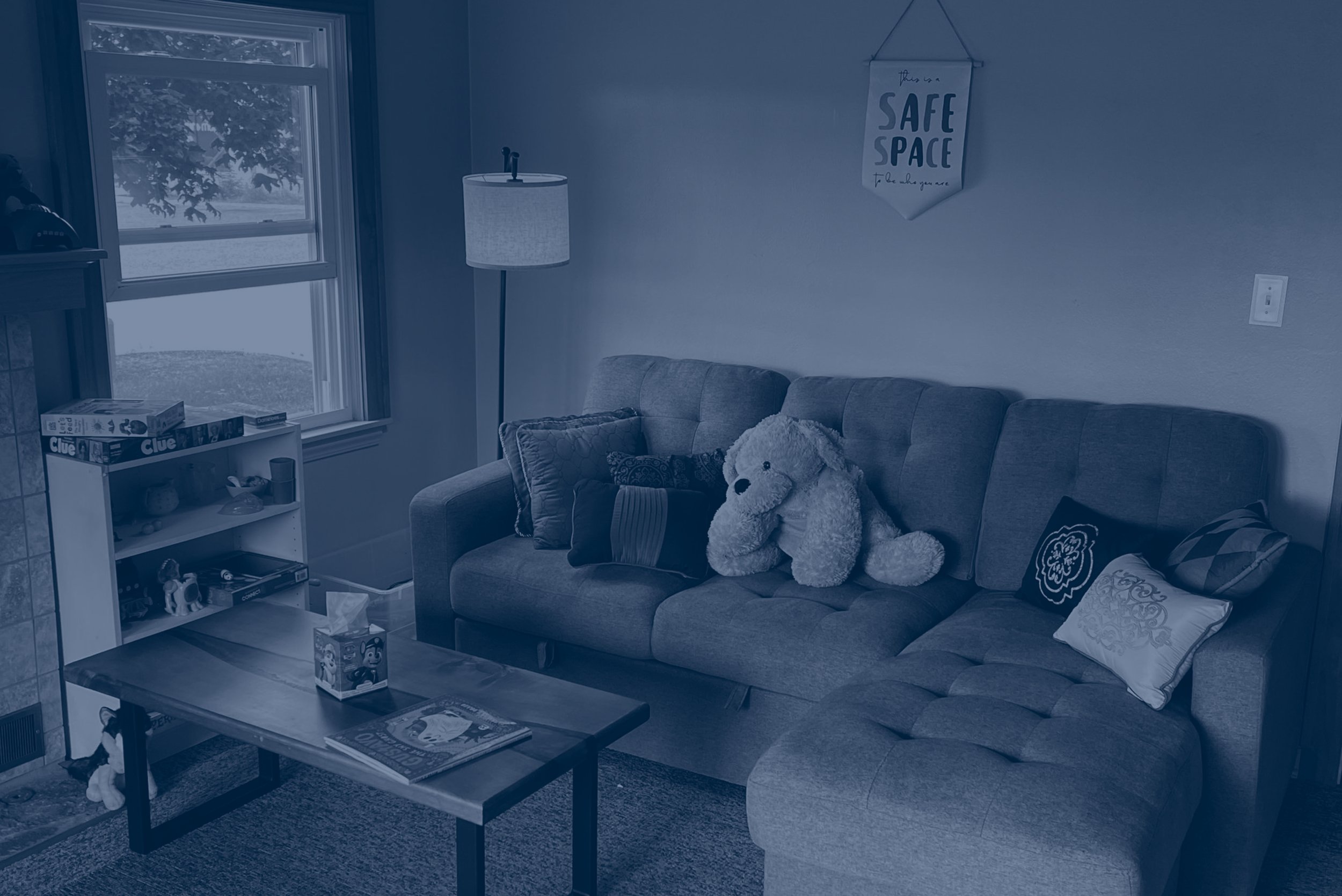
Child Advocacy Services
Forensic Interviews
Forensic Interviews are unbiased, truth-seeking, child-centered interviews used to help inform decisions in criminal and child protective investigations for child physical and sexual abuse, neglect, and human trafficking. These interviews are recorded and used as evidence in a case as it moves through the justice system.
The children’s advocacy center model is designed to reduce the number of people a child has to speak with during the initial stages of the investigation with the goal of reducing their trauma. Kids and teens can share anything that may be happening in a space that is comfortable, private, and secure.
Forensic interviewers meet first with the multidisciplinary team (MDT) involved with the case - which may consist of law enforcement, child protective services, the prosecutor’s office, medical personnel, advocates, and mental health providers - to discuss the case and gather relevant information. The interviewer builds rapport with the child, and makes sure that the interview environment is welcoming and developmentally appropriate.
Survivor & Family Advocacy
Child abuse and trauma are painful difficult to process realities for anyone to face. When families come to a children’s advocacy center, they come with different life experiences, backgrounds, and needs. Having a dedicated trained professional to help them navigate complex systems like the criminal justice system and advocate for their needs, throughout the life of their case, can be validating and empowering.
Advocates help families make a plan for safety, set goals for healing, discuss common responses and behaviors related to childhood trauma, and find support services to help the family thrive again. Services like referrals to trained trauma-focused therapists, provide information & assistance with applying for Crime Victim’s Compensation, preparing for court and testifying, applying for a PPO, and case coordination.
Multidisciplinary Team (MDT) Coordination
Investigations for child abuse, neglect, and human trafficking are complex and multi-factored. Many agencies work to respond to child abuse cases in unique ways; law enforcement, child protective services, prosecutors, Sexual Assault Nurse Examiners & medical professionals, mental health providers, and more. Children’s Advocacy Centers are a hub for these teams to work together, share information where possible, and improve case outcomes for children and their caregivers.
This team of cross-discipline professionals meet each month to review cases, ensure access to needed support services, keep families informed, and address any complications that arise.



